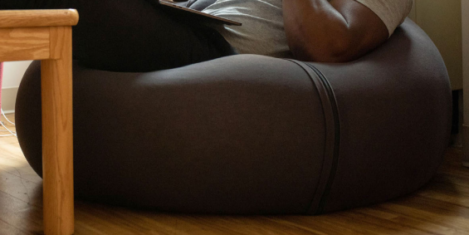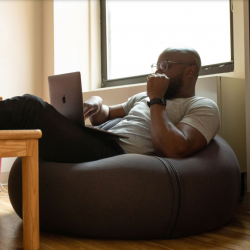To provide the best experiences, we use technologies like cookies to store and/or access device information. Consenting to these technologies will allow us to process data such as browsing behaviour or unique IDs on this site. Not consenting or withdrawing consent, may adversely affect certain features and functions.
The technical storage or access is strictly necessary for the legitimate purpose of enabling the use of a specific service explicitly requested by the subscriber or user, or for the sole purpose of carrying out the transmission of a communication over an electronic communications network.
The technical storage or access is necessary for the legitimate purpose of storing preferences that are not requested by the subscriber or user.
The technical storage or access that is used exclusively for statistical purposes.
The technical storage or access that is used exclusively for anonymous statistical purposes. Without a subpoena, voluntary compliance on the part of your Internet Service Provider, or additional records from a third party, information stored or retrieved for this purpose alone cannot usually be used to identify you.
The technical storage or access is required to create user profiles to send advertising, or to track the user on a website or across several websites for similar marketing purposes.
 A new study on recruitment and workforce trends has crowned London as the world’s most desirable city to work in, with the UK capital holding onto the top spot, despite uncertainty around Brexit and the ongoing Covid-19 pandemic. (more…)
A new study on recruitment and workforce trends has crowned London as the world’s most desirable city to work in, with the UK capital holding onto the top spot, despite uncertainty around Brexit and the ongoing Covid-19 pandemic. (more…)






 UK employers claimed £24 billion of free labour last year because of workers doing unpaid overtime, according to new analysis published by the
UK employers claimed £24 billion of free labour last year because of workers doing unpaid overtime, according to new analysis published by the 
 Whilst initial lockdowns saw a positive response from managers looking to support their teams, it seems maintaining this level of empathy a full year later is for some leaders proving unsustainable claims business training course provider,
Whilst initial lockdowns saw a positive response from managers looking to support their teams, it seems maintaining this level of empathy a full year later is for some leaders proving unsustainable claims business training course provider, 
 UK employers are reporting their strongest employment intentions in a year, the latest
UK employers are reporting their strongest employment intentions in a year, the latest 
 Almost two million workers were unemployed or fully furloughed in January – and had been for at least six months – highlighting the scale of lasting damage to the UK’s labour force that will need to be addressed in the Budget, according to major new research published today by the Resolution Foundation.
Almost two million workers were unemployed or fully furloughed in January – and had been for at least six months – highlighting the scale of lasting damage to the UK’s labour force that will need to be addressed in the Budget, according to major new research published today by the Resolution Foundation. 
 r workplace digital transformation and the urgent shift to remote working has seen the world experience two years of digital transformation in two months. New research from
r workplace digital transformation and the urgent shift to remote working has seen the world experience two years of digital transformation in two months. New research from 
 Two and a half million Brits are expected to be unemployed this year after the fall out of the pandemic. A concern for many has been how disabled people will fare with the aftermath. The unemployment rate for people with disabilities is more than twice those who are able bodied.
Two and a half million Brits are expected to be unemployed this year after the fall out of the pandemic. A concern for many has been how disabled people will fare with the aftermath. The unemployment rate for people with disabilities is more than twice those who are able bodied. 
 The impact of the nation’s deteriorating mental health from Covid-19 lockdowns and other restrictions cost UK businesses £14bn last year, according to a study by
The impact of the nation’s deteriorating mental health from Covid-19 lockdowns and other restrictions cost UK businesses £14bn last year, according to a study by 
 The
The 
 For now, just forget the
For now, just forget the 
 The UK jobs market recovered 170,000 jobs in January as the COVID-19 vaccination roll out boosted employer optimism, claims new research from job search engine
The UK jobs market recovered 170,000 jobs in January as the COVID-19 vaccination roll out boosted employer optimism, claims new research from job search engine 







February 26, 2021
The link between wellbeing and green design is driving material innovation
by Craig Stuart • Comment, Environment, Wellbeing, Workplace design